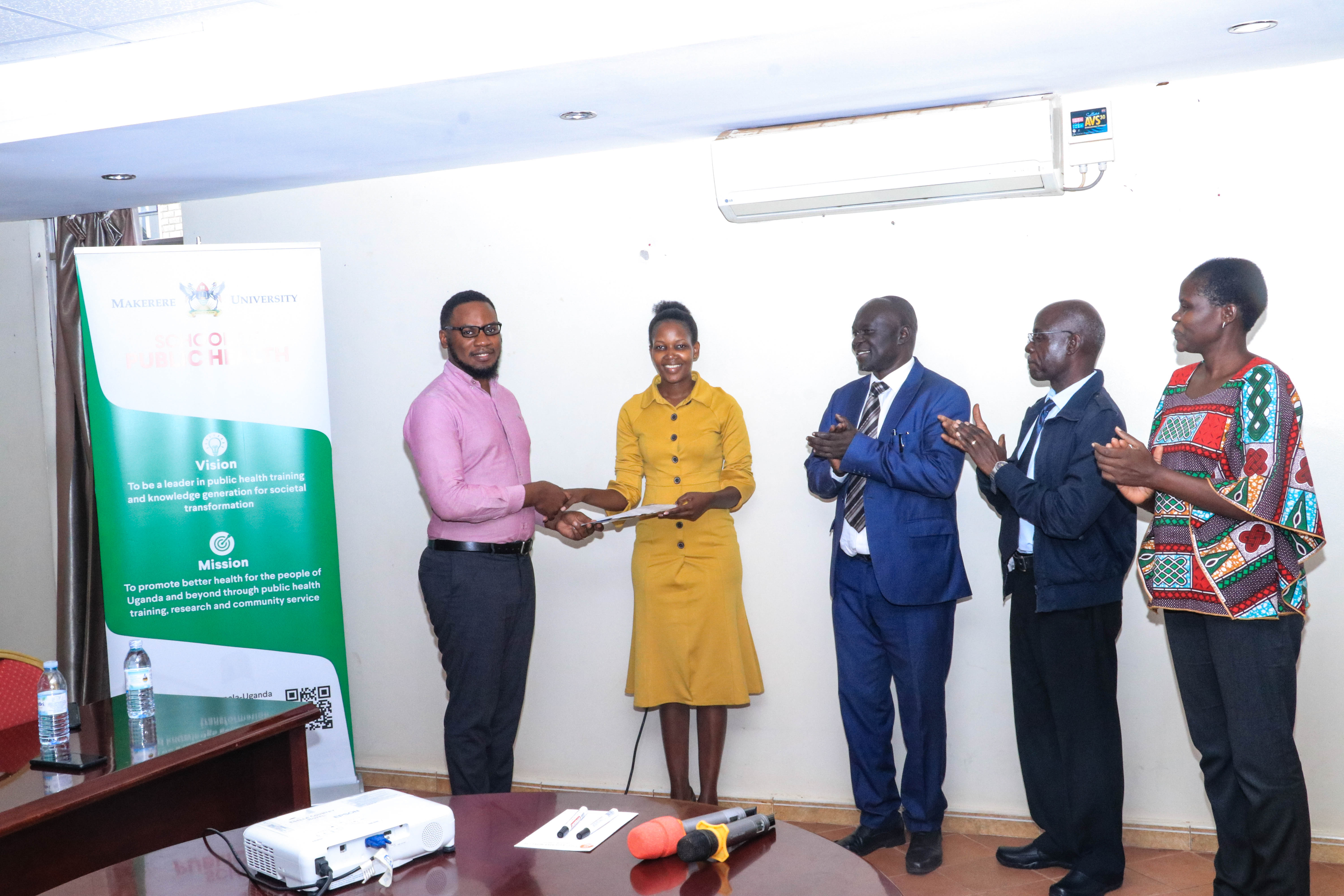
The E-health for HIV Service Delivery program has emerged as the winner of Makerere University School of Public Health —MakSPH's innovation challenge focused on addressing the COVID-19 pandemic. The program outshone five other innovations to earn the coveted award.
Reach Out Mbuya Community Health Initiative —ROM, a community-based non-governmental organization working with urban and rural poor communities across six districts, won a prize of Shs.14.3 million to further develop their innovative solution implemented under the E-health for HIV Service Delivery program.
ROM implemented an electronic community health information system and the Uganda EMR mobile during the pandemic, enabling community-based surveillance and access to equitable health services. These eHealth solutions capture real-time data on community ART services, home-based care, TB screening, and more, enabling community health workers to provide remote patient support and data management. The panel of 13 multisectoral and multi-disciplinary members highly scored the E-health for HIV Service Delivery program based on these innovative solutions.
In November 2022, the Ministry of Health, TASO Uganda, and MakSPH, with funding from Global Fund, called for innovative designs from individuals and organizations, including community-based and civil society organizations, to ensure continuity of HIV, TB, or malaria health services during the COVID-19 pandemic in Uganda.
"The innovations were expected to take the form of new services, practices, processes, service delivery models, or technology, implemented between March 2020 and November 2022," said Dr. Dinah Amongin, a health scientist and lecturer at MakSPH, who served as the Principal Investigator of the innovation documentation study. "They did not necessarily have to be scientific, but rather have social impacts, be people-centered, and target community people."
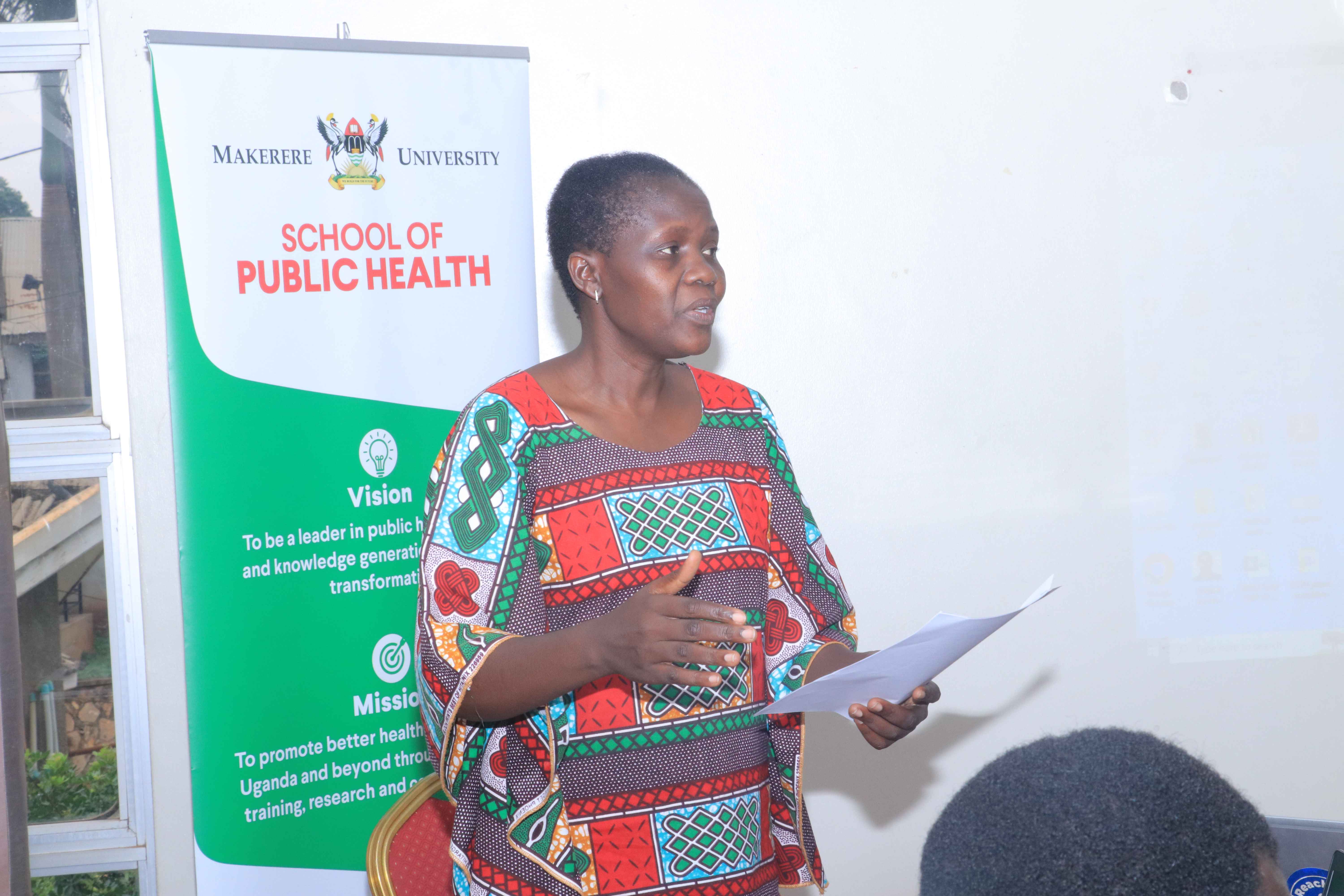
The study aimed to evaluate the effectiveness of people-centered and community-based approaches implemented during the COVID-19 pandemic to ensure continuity of HIV, TB, and Malaria services in Uganda. The research team included Dr. Dinah Amongin, Ms. Christine Aanyu and Prof. Rhoda Wanyenze from MakSPH and Irene Murungi, JJ Egesa, and Dr. Simple Ouma from TASO Uganda.
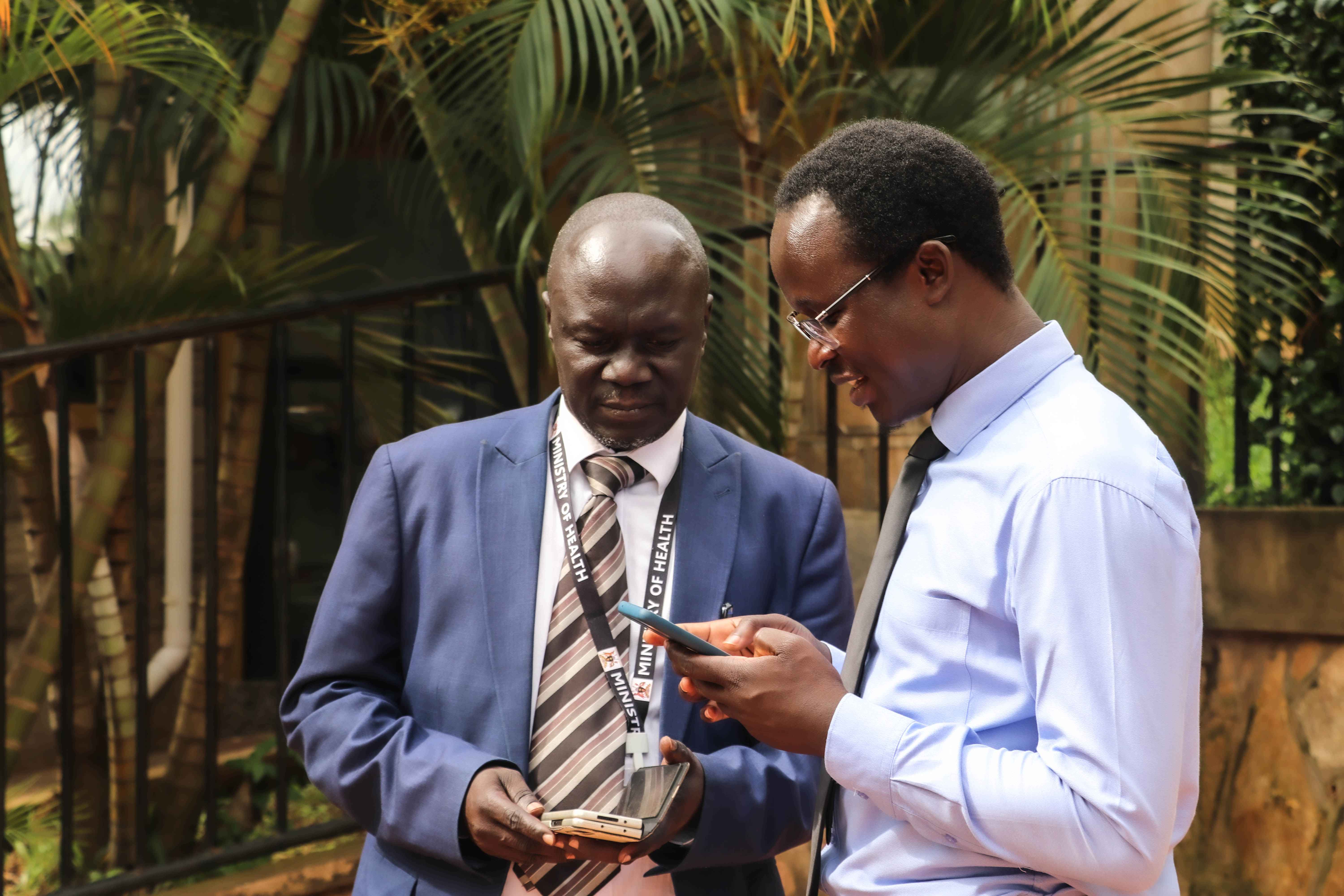
After a four-week biweekly open call through various channels, including print, broadcast, and online, 22 applications were received. Of these, 14 met the criteria and were shortlisted. The expert team then scored the applications and selected the top five.
The following five innovations were selected: Empowered at Dusk Women's Association (EADWA), Lotome Youth Integrated Development Association (LOYIDA), Reach Out Mbuya Community Health Initiative, a 24-hour call center by UGANET providing free legal aid services to PLHIV/TB and other vulnerable communities, and the Africa Leadership Institute's home-based drug refill initiative for HIV/AIDS/TB epidemic control in Yumbe among host and refugee communities during the COVID-19 pandemic.
On May 3rd, 2023, all five innovative solutions had the chance to present to a team of evaluators from the Ministry of Health Uganda, TASO Uganda, and MakSPH during a one-day workshop held at Esella Hotel. The panelists were impressed by the solutions and the teams' dedication to placing the community at the core of service delivery while following Ministry of Health guidelines. The panelists emphasized the significance of collaboration for success and the importance of reaching clients with the innovations.
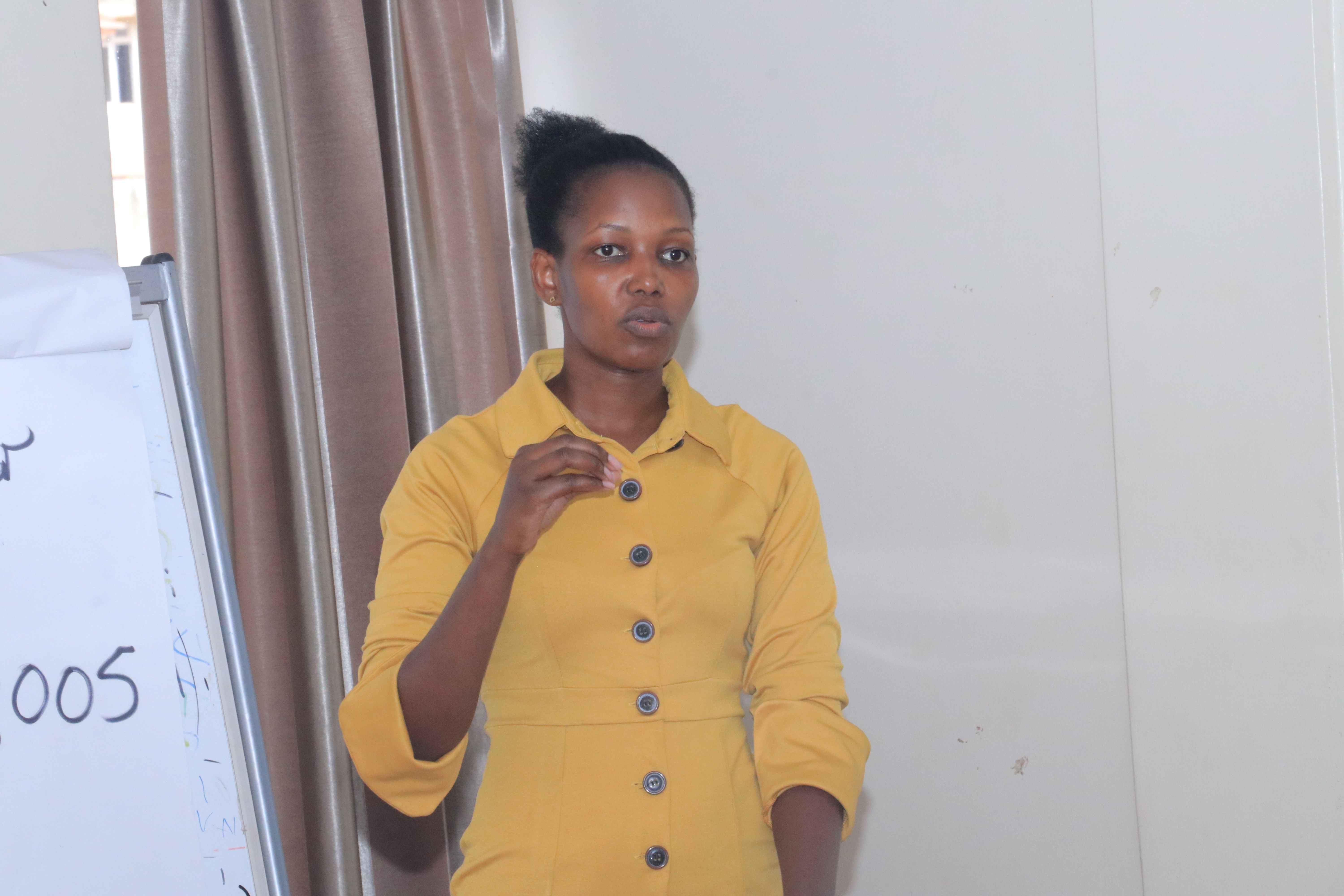
“We are excited to award Reachout Mbuya a grant of 14,320,000 UGX to use to improve their innovation. This innovation can be scaled up or used in other crisis times, and we believe it has the potential to make a significant impact on healthcare delivery in Uganda.
Congratulations to Reachout Mbuya and to all the teams that participated in the COVID-19 Innovations. We hope that these innovations will continue to improve access to services for the population and inspire more creative solutions in the future,” announced Jacqueline Katesi Kyambadde, Project Coordinator, Grant Management Unit (TASO)
Speaking shortly after the award, Sendaula Emmanuel, the Monitoring & Evaluation manager, Reachout Mbuya said their innovation, E-health for HIV service delivery, is specifically designed for community health workers to enable remote patient support and data management. This innovation was particularly relevant in the context of the COVID-19 pandemic, as it allowed for continued access to critical HIV services while reducing the risk of exposure to the virus.
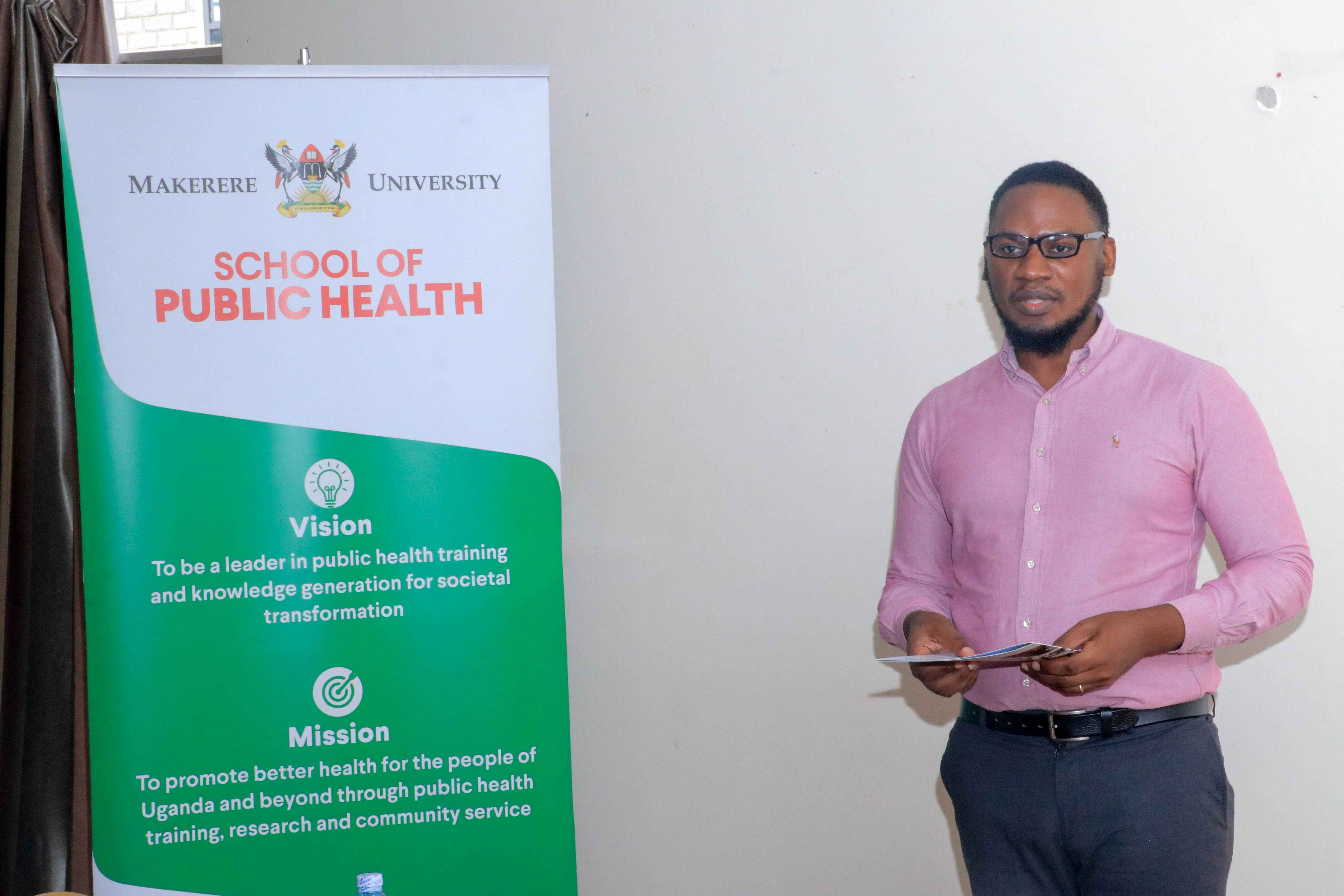
“This facility database was utilized to retrieve client information, and drugs were pre-packed, labeled, and delivered by community health workers on bikes. Moreover, the e-platforms were synchronized with the facility database, ensuring all information was received in real-time. This enabled critical community-based surveillance and equitable access to health services during the pandemic,” said Sendaula.
“I want to take this opportunity to thank all the innovators. You are all winners. The panel of judges were all scratching their heads to settle for one innovation. We thought all of you deserved the prize but because we didn’t have the resources, we could not do much. But that should not discourage you because we are all in this to help our communities and our people. You have done a very commendable job and we appreciate you for what you have been able to do within your means. Only if we can get more resources then we can give you a helping hand,” said Dr. Ronald Miria Ocaatre, the Acting Assistant Commissioner Health Promotion, Education and Communication, Ministry of Health.
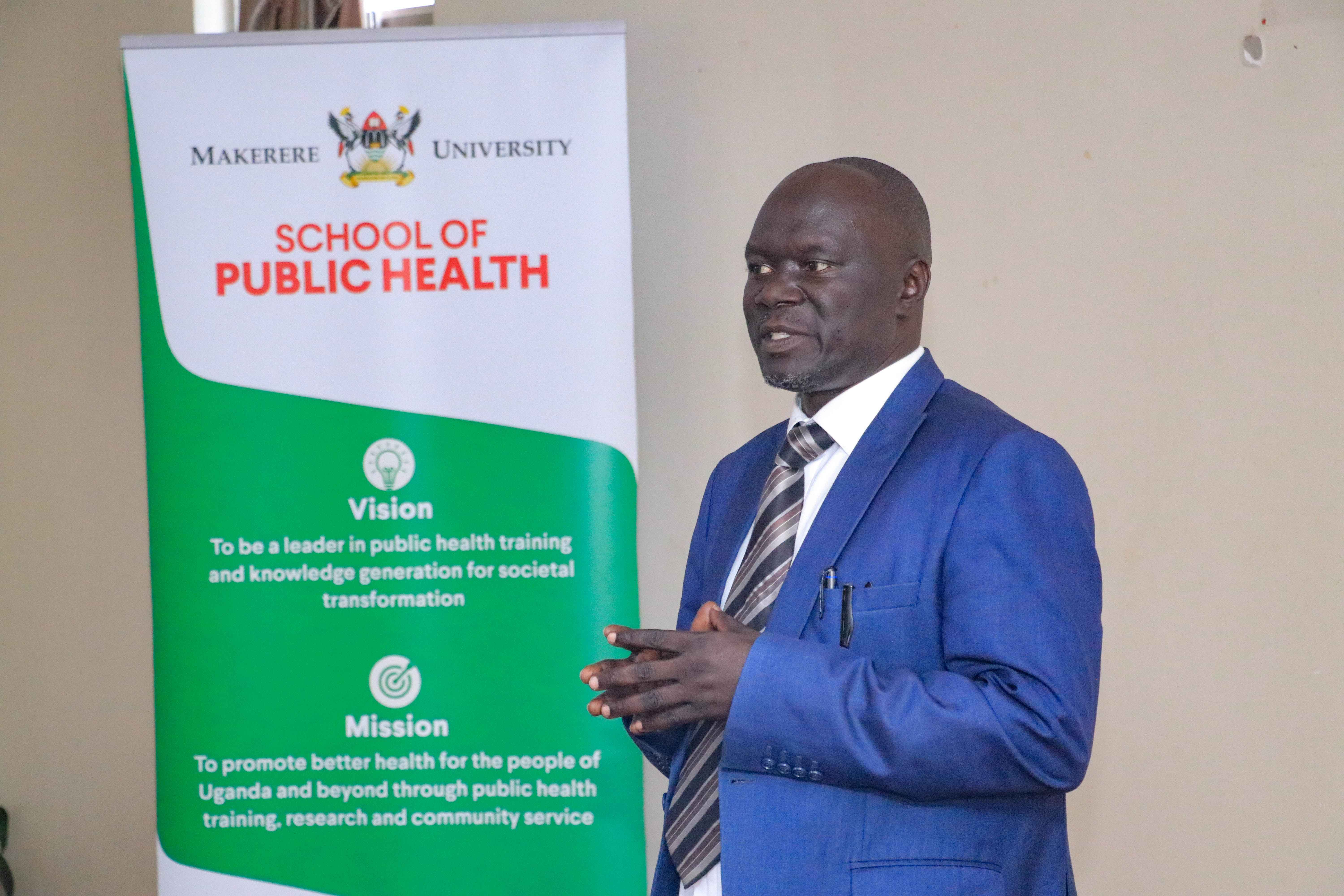
Dr. Ocaatre said the Ministry of Health, Uganda prides itself in the collaboration with MakSPH and hopes for greater strides with continued partnerships.
"We value the good working relationship we have with the School of Public Health, and we believe it will continue to be strengthened. As we implement activities, we prioritize science and evidence, and the partnership with MakSPH has been instrumental and useful. We hope to continue receiving your academic guidance and knowledge because MakSPH is a credible institution that provides us with human resources," said Dr. Ocaatre.
Representing the Dean of the School of Public Health, Dr. John Bosco M. Ddamulira, a Lecturer in the Department of Disease Control and Environmental Health expressed his gratitude to TASO, the Ministry of Health, and the funders (Global Fund) for their support in the innovations challenge.
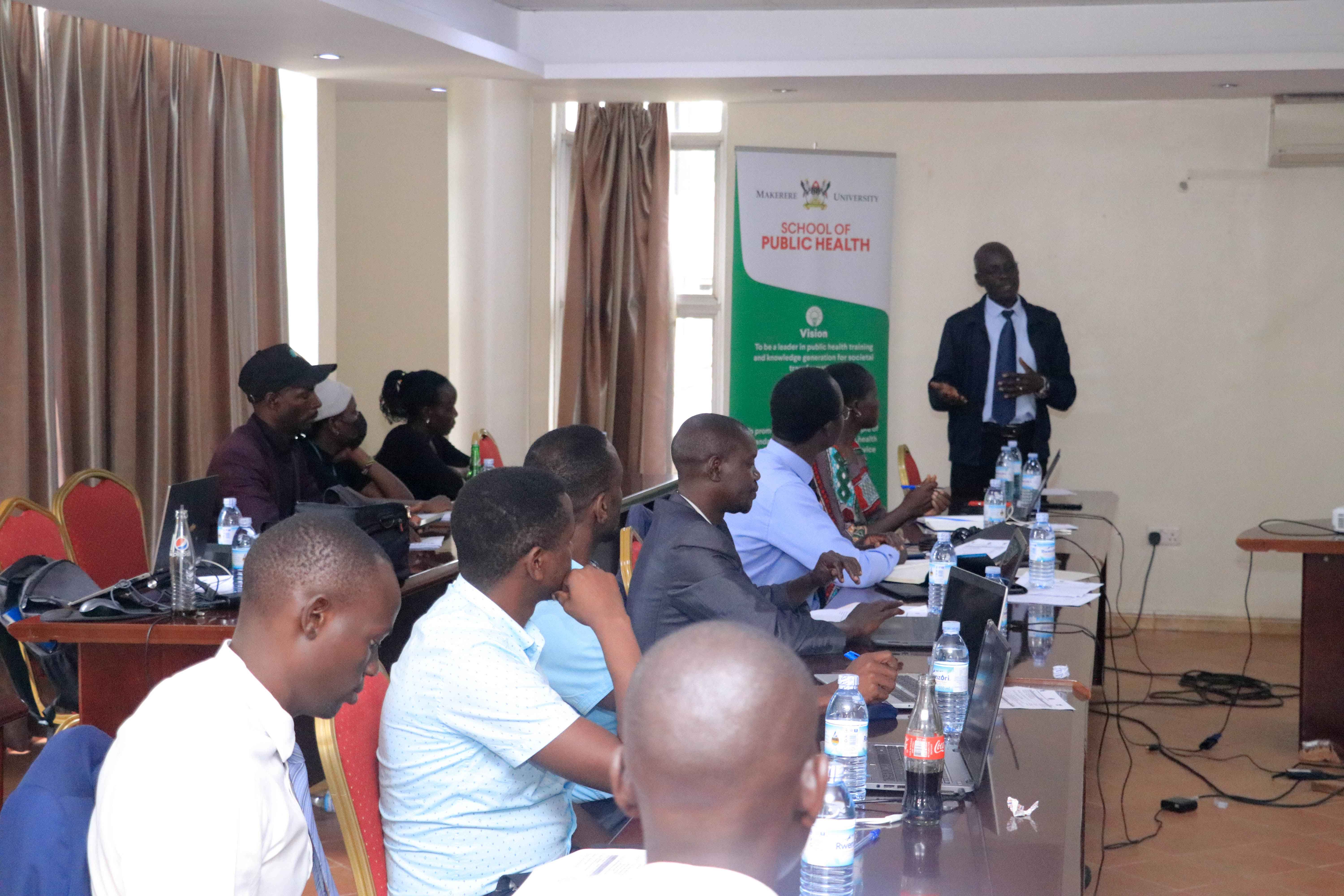
"I encourage you to use these innovations beyond HIV/TB and Malaria and integrate other diseases to be comprehensive," said Dr. Ddamulira. "We are very grateful with TASO and the Ministry of Health and the funders (Global Fund). All the participants in this innovations challenge are all winners. I congratulate you. The results were very interesting. Whoever has not made it to the top, just know you are good. We are only constrained by resources and we had to get one winner. Your innovations can be made better and taken to another level."
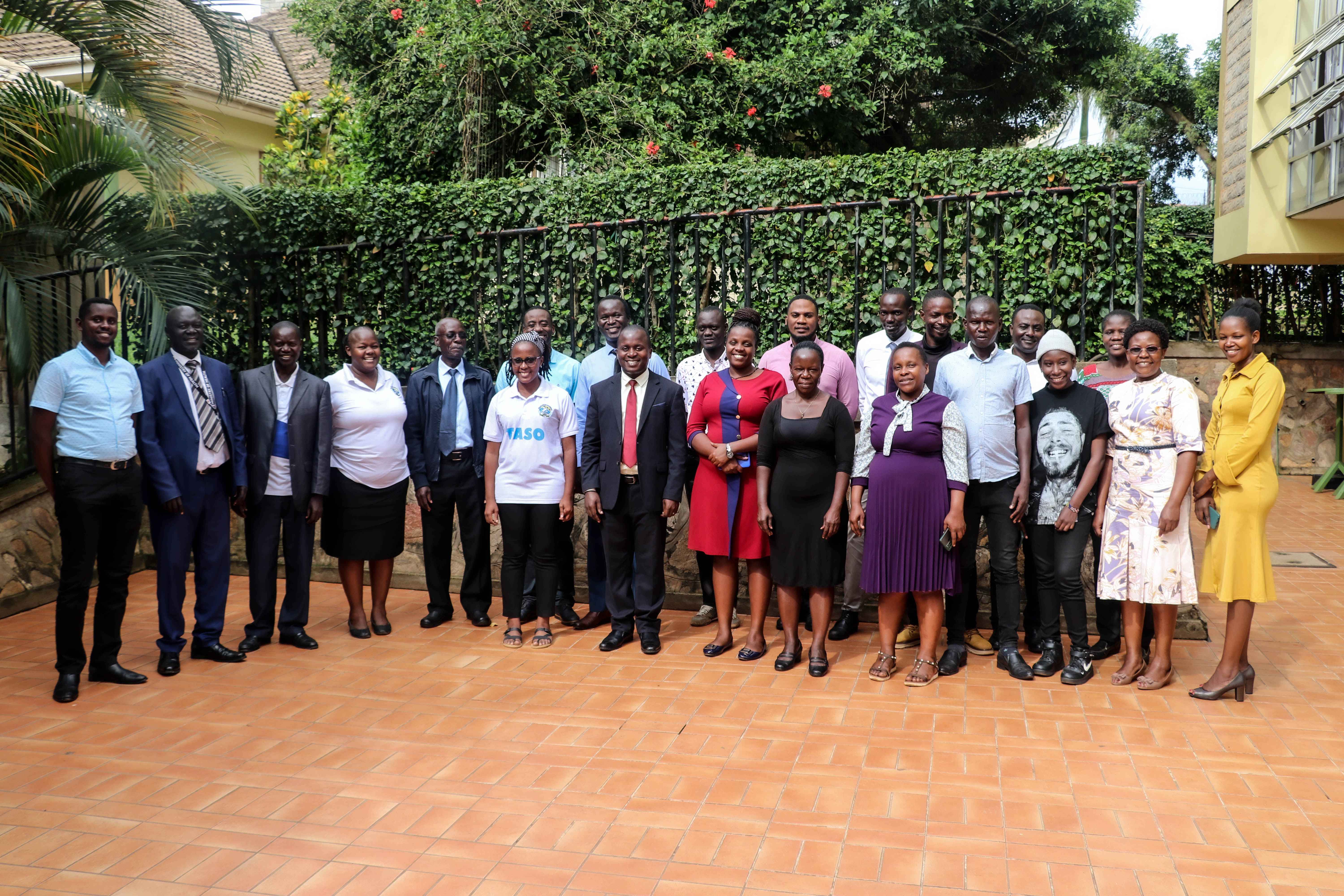
Rationale for HIV, TB, and Malaria Innovations
The call focused on HIV, TB, and Malaria because the COVID-19 pandemic disrupted the provision, access, and utilization of health services, affecting the most vulnerable groups, especially women, children, and those with chronic medical conditions. HIV/TB and Malaria are leading killers in Sub-Saharan Africa and Uganda has a high burden of these diseases. COVID-19 disruptions were predicted to worsen the situation, as modeling studies predicted an increase in these diseases. The challenges faced include disruptions in the supply of essential health services and reduced patient flow due to fear of contracting the virus and travel challenges.
Written by Davidson Ndyabahika

